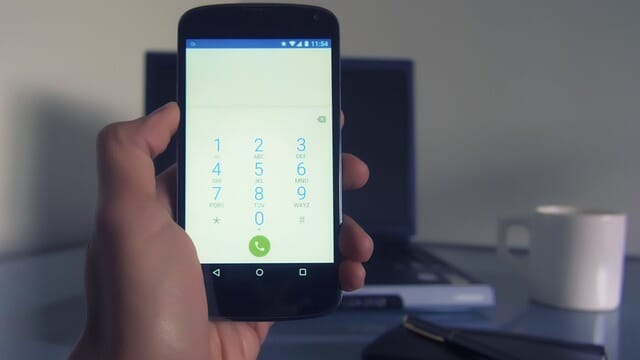
Making Sense of Suspicious Calls Through Effective Searches
Introduction
In today's fast-paced digital world, receiving unexpected or suspicious phone calls has become a common occurrence. These calls can range from harmless telemarketing to potentially harmful scams. With the increasing prevalence of phone-related fraud, it is crucial to have a reliable method for identifying who is calling you and what their intentions might be. Fortunately, there are free number search tools available that allow you to investigate Unknown number identification unknown numbers quickly and efficiently. This article aims to equip you with the knowledge needed to decode those suspicious calls through effective searches.
Making Sense of Suspicious Calls Through Effective Searches
When faced with an unfamiliar number on your caller ID, many people instinctively feel a sense of unease. This apprehension is not unfounded; various scams target unsuspecting individuals, hoping to exploit their trust or ignorance. But how can one sift through these uncertainties? The answer lies in understanding how to use 100% free reverse phone lookup services Phone owner identification effectively.
Understanding Suspicious Calls
What Constitutes a Suspicious Call?
Suspicious calls often exhibit certain characteristics that raise red flags. These may include:
- Unknown Numbers: Calls from numbers that aren’t saved in your contacts.
- Urgency: Messages urging immediate action, often threatening consequences.
- Unusual Promises: Offers that seem too good to be true.
Recognizing these signs can help you decide whether or not to engage with the caller.
Common Types of Suspicious Calls
- While some telemarketing efforts are legitimate, others can be misleading or outright scams.
- These often involve impersonating government agencies or companies with threats of legal action or promises of financial gain.
- Automated messages that typically promote fraudulent offers or request personal information.
The Importance of Caller Identification
Why Identifying Unknown Numbers Matters
Knowing who’s calling you for free is not just about avoiding annoyance; it’s about protecting yourself and your information. Understanding the source of a call allows you to make informed decisions on whether to engage further or block the number entirely.
The Role of Caller ID Services
Caller ID services provide basic information like the name and location associated with a phone number, which can be useful in determining if a call is worth answering.
Exploring Free Number Search Tools
Overview of Free Reverse Phone Lookup Services
There are numerous online platforms offering no-cost phone lookup services. These tools can help reveal the identity behind an unknown caller quickly and easily.
Key Features of Effective Free Number Search Tools
Top 5 Free Reverse Phone Lookup Services
| Service Name | Features | Website | |---------------------|---------------------------------------------------|----------------------------| | Whitepages | Basic search options; paid features available | whitepages.com | | Truecaller | Community-driven database; spam detection | truecaller.com | | Spy Dialer | Voice mail retrieval; free searches | spydialer.com | | AnyWho | Simple interface; directory assistance | anywho.com | | NumLookup | Basic reverse lookup capabilities | numlookup.com |
How to Use Free Reverse Phone Lookup Tools Effectively
Step-by-Step Guide
Potential Limitations of Free Number Search Tools
Accuracy Issues
Many free lookup services rely on public records and user submissions, which means that inaccuracies can occur frequently.
Limited Information
Some platforms offer only basic details without diving deeper into criminal backgrounds or scam reports associated with a number.
FAQ Section
Can I really find out who’s calling me for free? Yes! There are numerous resources—like those mentioned above—that provide free reverse phone lookups without hidden fees.
Are these searches completely confidential? Most reputable services prioritize user privacy but always read their privacy policies before proceeding.
What if I find out it's a scam? You should report the number to local authorities or even your service provider if necessary.
Is it safe to use these tools? Generally, yes—as long as you're using established sites known for privacy protection and data accuracy.

Will I get ads while using these services? Many free services operate on ad revenue; hence some might display ads while providing their tools at no cost.
Can I trust all results from free lookup services? Not necessarily—but cross-referencing multiple sources usually yields more accurate results.
Conclusion
Navigating suspicious calls doesn’t have to be daunting when armed with effective search strategies and reliable tools at your disposal. By utilizing well-established resources like free number search tools and practicing caution when engaging unknown callers, you can protect yourself from potential scams while maintaining peace of mind in an increasingly connected world.
With this guide on "Making Sense of Suspicious Calls Through Effective Searches," you'll be better equipped to handle those unexpected Caller ID lookup ring-a-lings confidently!